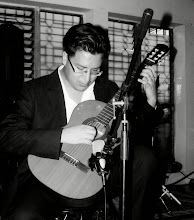Essay On Laureau's Unequal Childhoods
By Carlos W. Murgueitio Roa.
Sociology Class - Princeton University
Annette Laureau conducted an interesting
research in which, using the concept of Social Imagination developed by
Mills, she tried to tie the level of communication between parents and
kids of a certain neighborhood. The Concept of Social Imagination
developed by C. Wright Mills says that we as individuals and
sociologists should be aware of whatever role we play in certain
conditions (space and time) in our neighborhoods, countries and the
world, because we are part of what's going on in history. Without being
aware of it, we are being actors of the changes we experience and
witness in society, no matter if those changes are "good or bad".
In Laureau's book named "Unequal
Childhoods" she dwells into the experience of kids living in diverse
social environments: From Upper High Class to Working Class. And, inside
these environments, she tries to understand what's going on with the
children on those classes, meaning how they're developing a higher
sense of themselves, intelligence, and how do they behave in their
relationships as classmates and students. Using Mills' "Social
Imagination", she comes up to the conclusion that kids in the middle and
high classes have developed better ways of communicating with their
peers and with their school teachers, because their concerted education
with after school agendas expands their mind, and they experience more
communication with their parents in their own homes, something that also
re-inforces their self-steem somehow. Working Class children on the
other hand, had no after school education and had fewer moments of
communication with their parents, so their communicating skills and self
steem were lower.
I am not sure if Laureau's study applies
well in Latin American Culture. I live in Ecuador (In Guayaquil City), a
small country of South America placed between Colombia and Peru. And
things here are a bit different (economically and socially) than in the
States. My country has incredible rates of debt with the IMF which seem
to never end, and sometimes life here seems pretty much hopeless because
of political turmoil. I'll not dwell on that in this essay but rather,
how I kind of disagree with Laureau's study because of what I
experienced living here in Guayaquil in a middle class family and
studying in Upper High Class high schools and colleges.
There's a thought here, among high and
middle class families that "the more activities the children has, the
more he/she learns". In that aspect, families have the same mindset as
Laureau's in her study. But, sometimes I've felt that people put their
kids into lots of activities just to keep them busy and away from them. I
have given guitar classes and tutored kids in high class families, and
what I've seen usually is that kids are kind of away from their parents,
because they keep working to make more money, and the only time they
see their kids is at late night, in which the kids are completely tired
after a whole bunch of useless activities and never ending homework they
have from their schools. Sometimes I believe that parents put their
childs into useless activities just to "show off" how busy their kids
are.
I might be wrong, though. I am not against after school activities,
what I am against is at the unnecesary quantity of activities after
school that leave the kids without time to study or rest from their
activities from school. Kids from working class environments on the
other hand, are a bit more healthier and close to their parents, because
usually their parents handle their own little business and go back from
work early. They do experience after school activities as well -
usually soccer because that's what is most popular here rather than
artistic activities - but not in an exaggerated manner just as some of
the high and middle class parents put their children into. And, the
communication between kids and parents is way much better, and they do
experience much higher levels of self steem than their high and middle
class peers, even if they live in a harsh environment, because they have
learned from their parents to keep going.
I believe that we should let
kids be kids and let them enjoy their childhood, with no pressure from
us parents to do what we "believe" is the best for them, and encourage
them to pursue their interests.


No comments:
Post a Comment